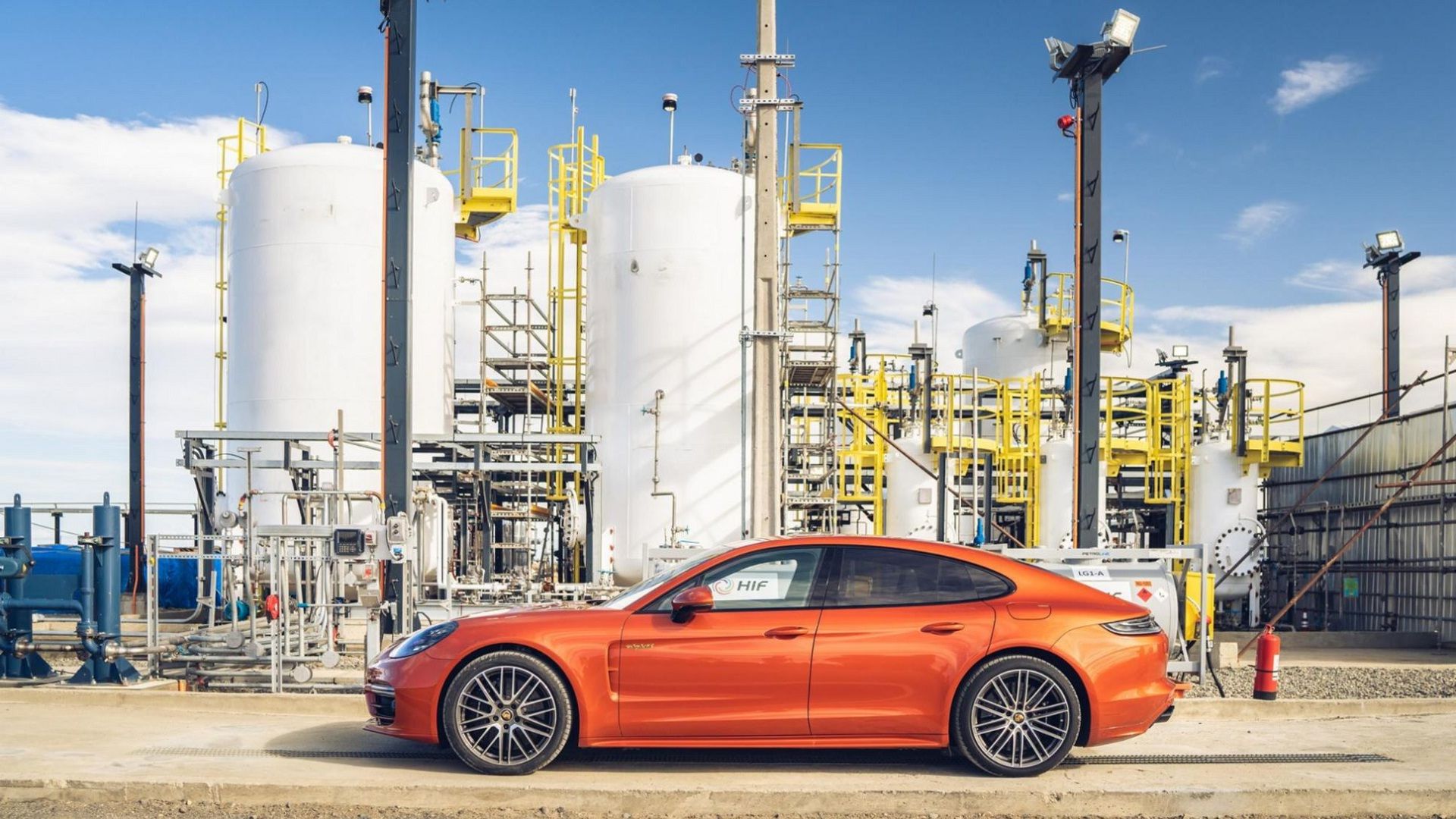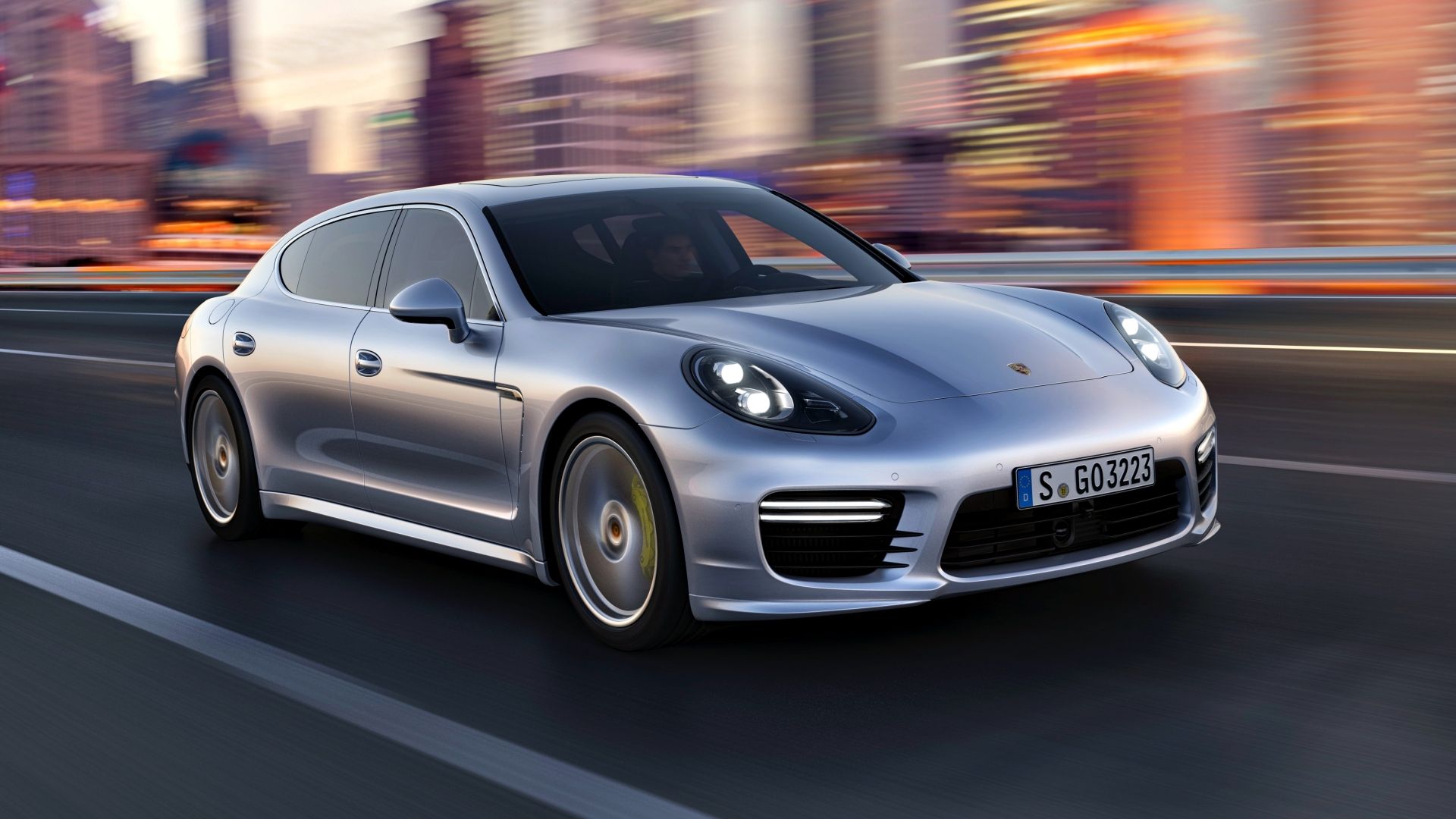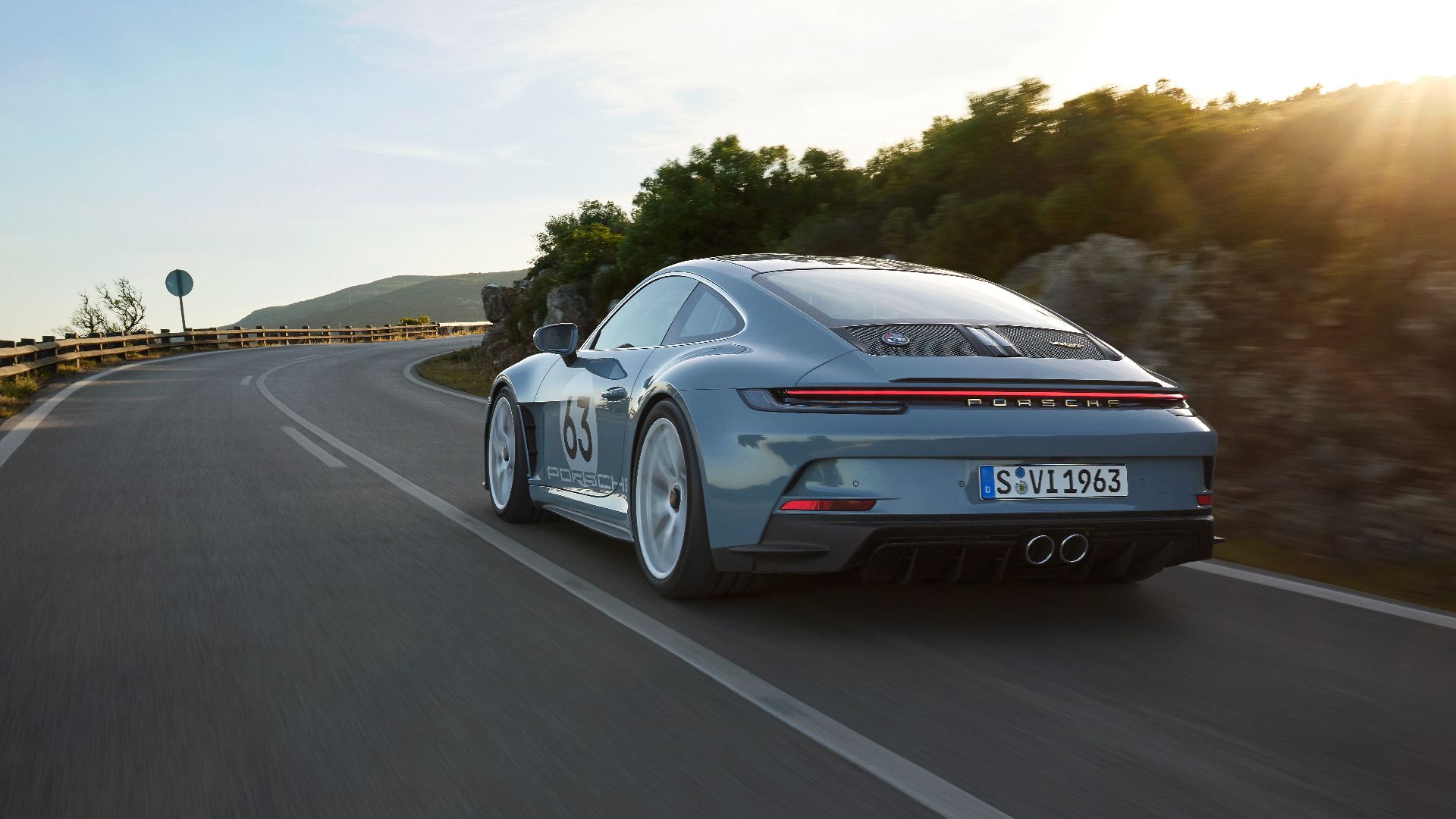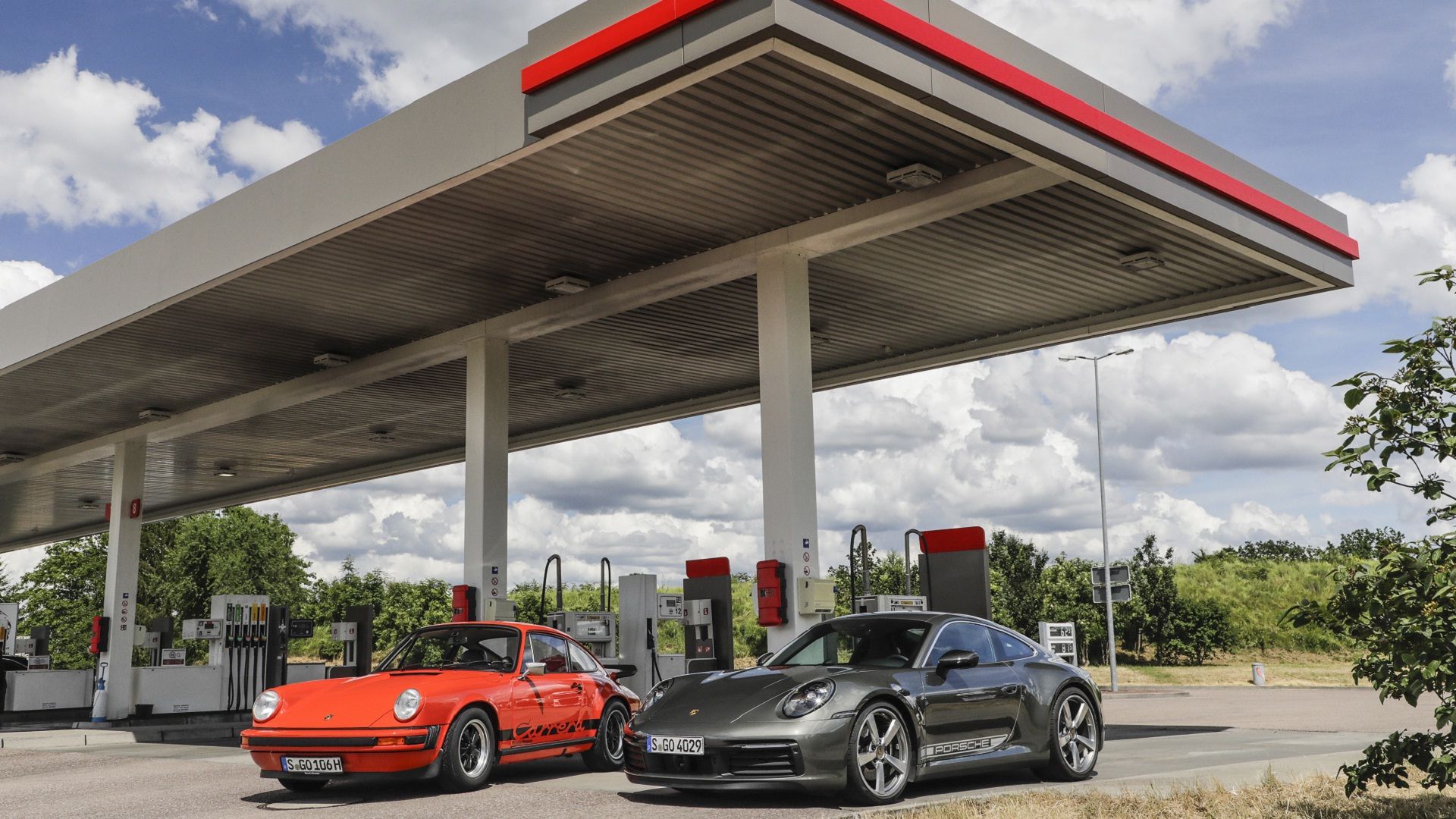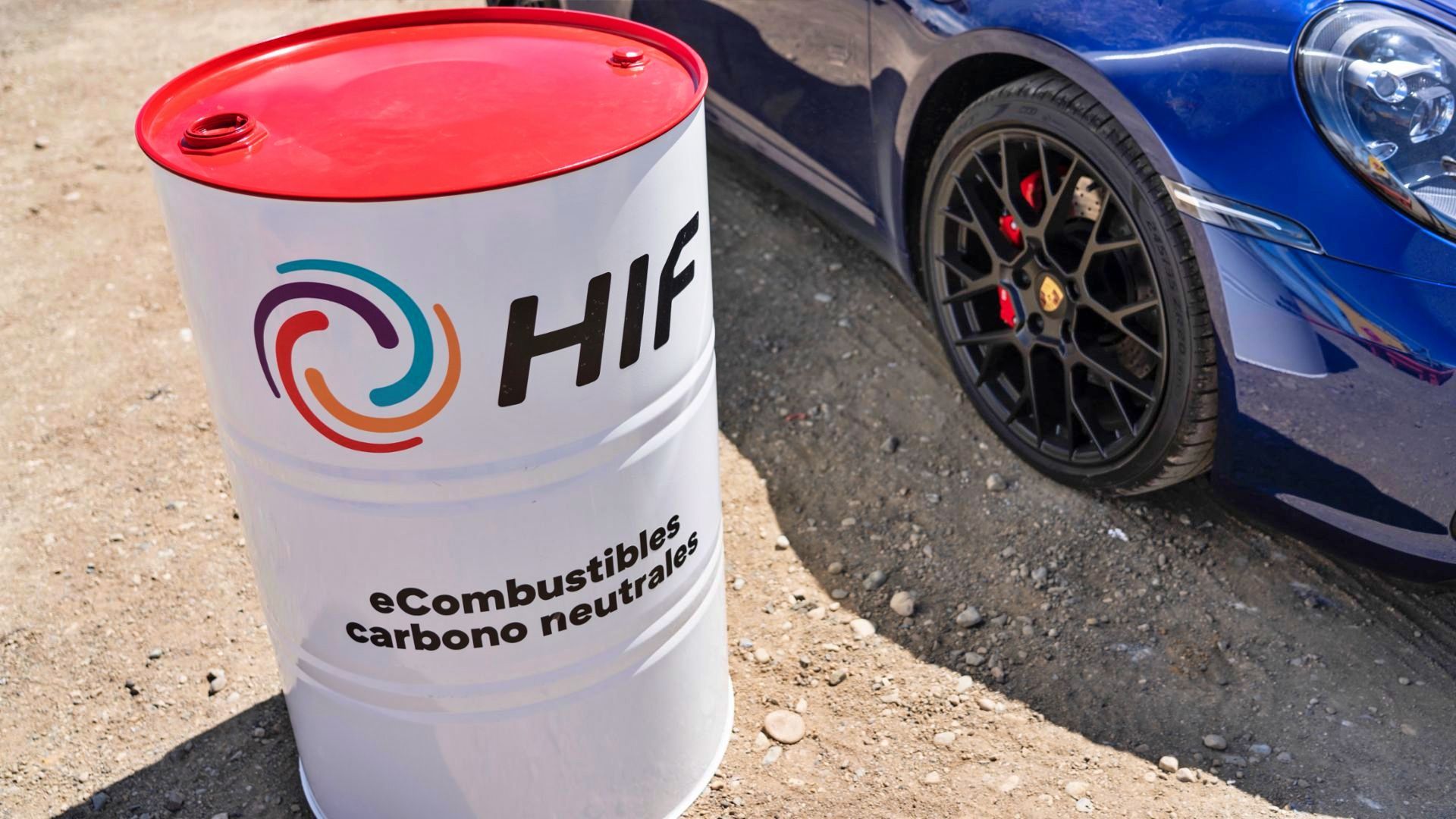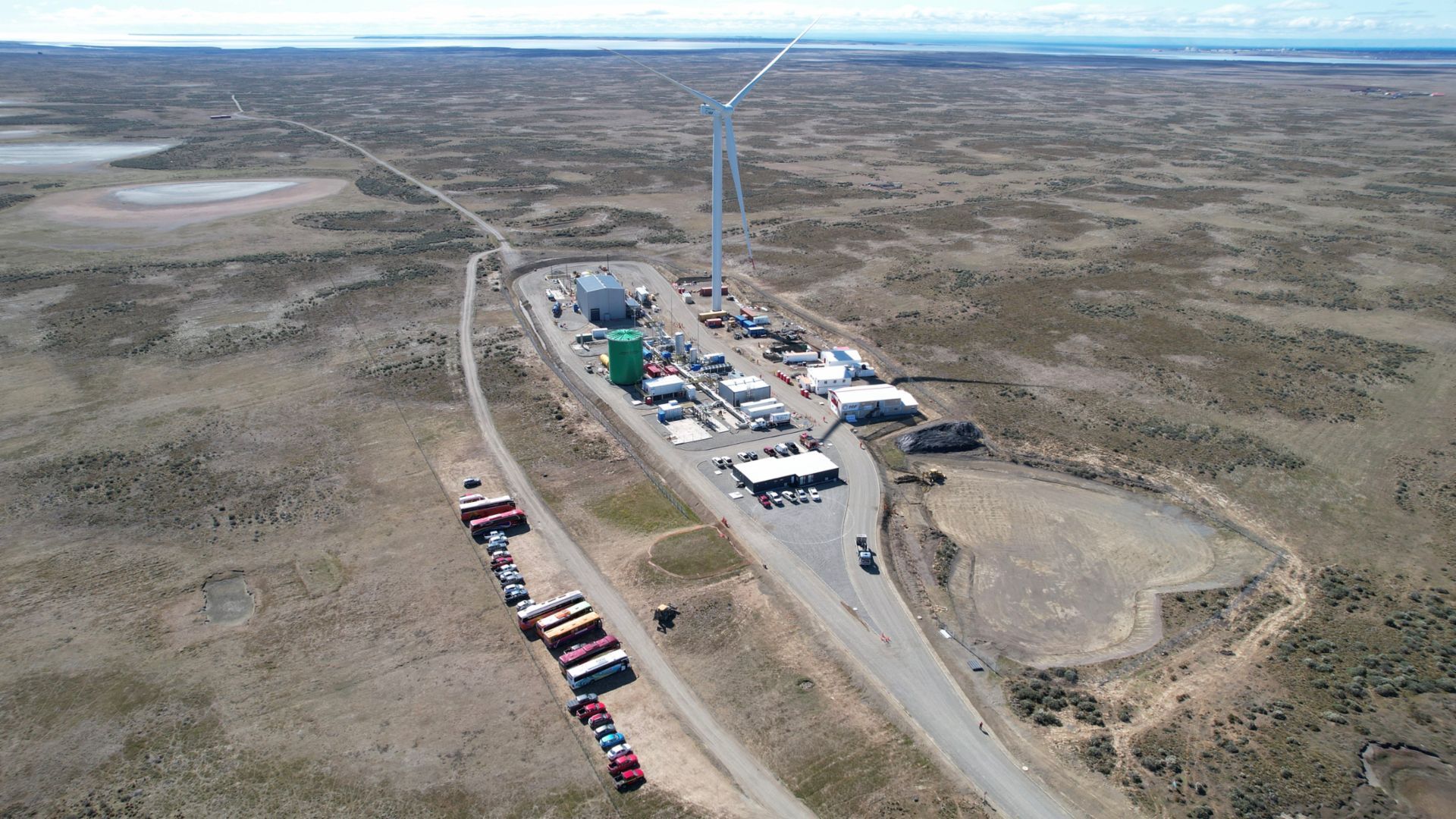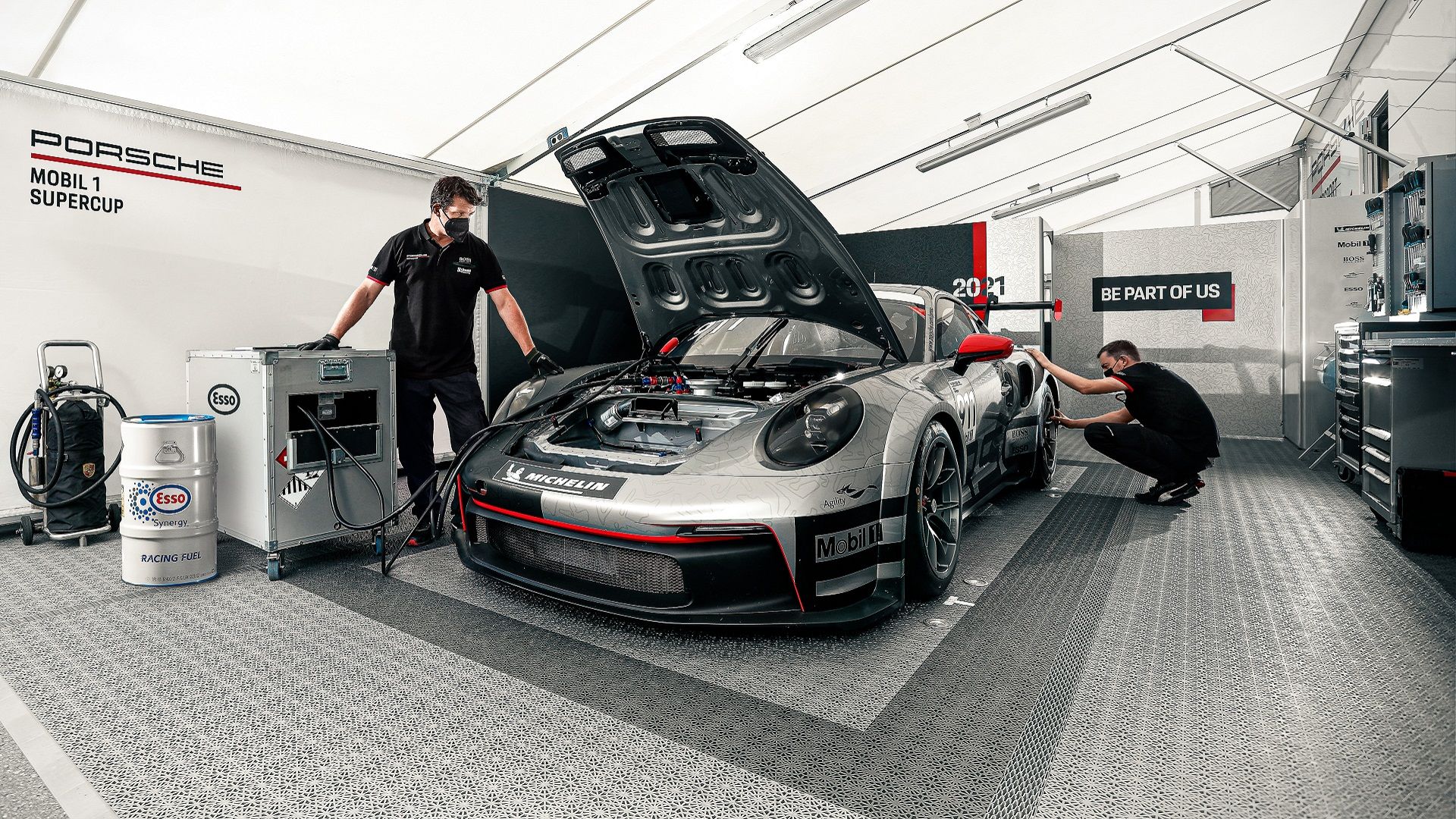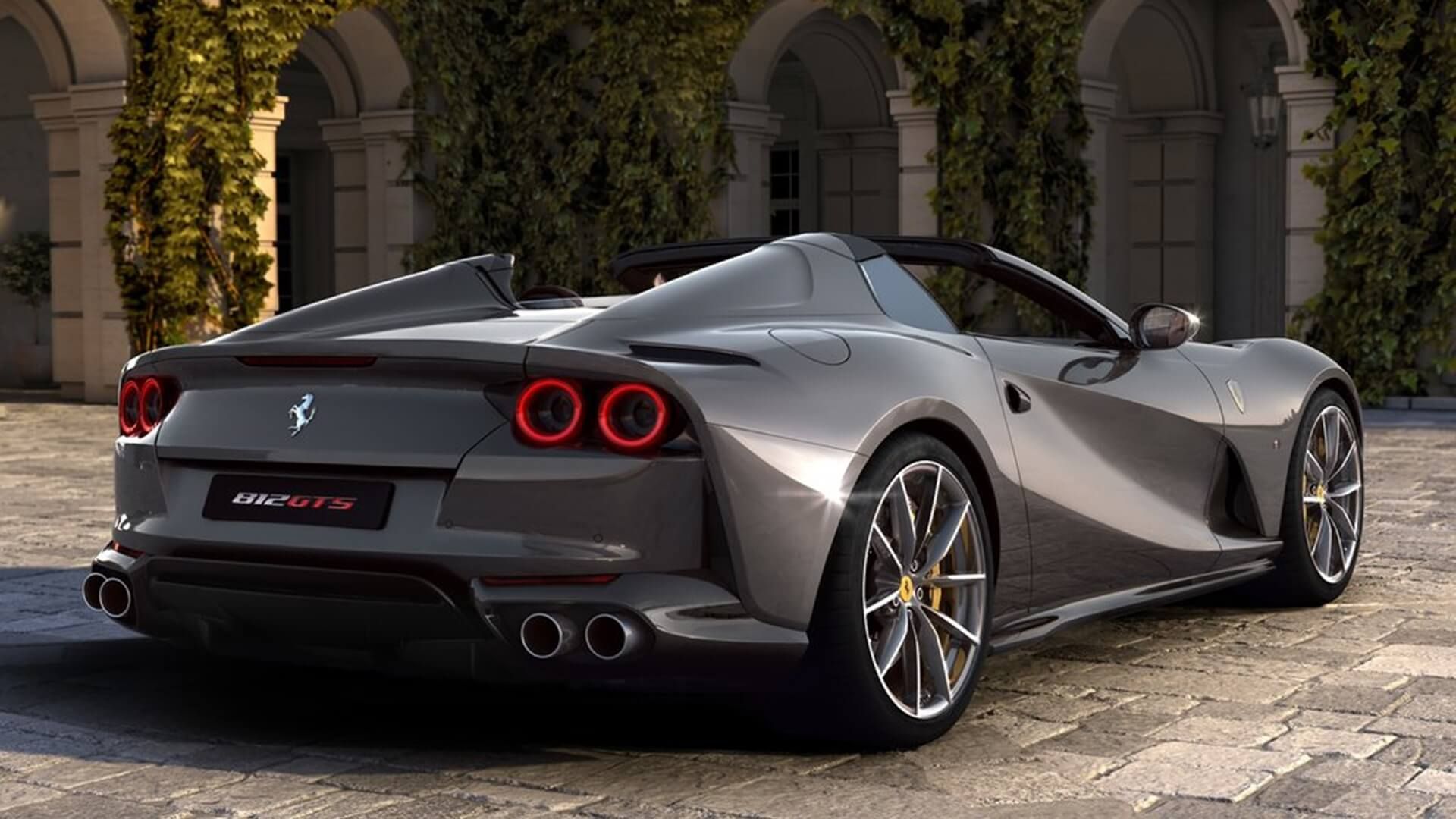Summary
- Porsche is creating eFuels, a kind of artificial gas produced from renewable vitality sources, as a substitute for gas-powered vehicles.
- These eFuels are almost carbon-neutral and can be utilized interchangeably with conventional gasoline in combustion engines.
- Porsche plans to make use of eFuels not solely in their very own automobiles but additionally in planes, transport vans, and boats, with the aim of decreasing carbon emissions throughout varied modes of transportation.
Porsche has shocked many individuals over the previous few years with its shift towards electrification, new releases, and now, artificial gas. Porsche has been creating eFuels for fairly a while, basically constructing the right “alternative” to gas-powered vehicles with out shedding the ever-loved horny Porsche impact.
Porsche Synthetic Fuel, also known as eFuels, is a kind of artificial gas produced from renewable vitality sources. It is designed to be almost carbon-neutral, constructed from carbon dioxide (CO2) and hydrogen using renewable energy. The European carmaker has since opened a plant to supply eFuels particularly in South America, promising ~130,000 liters (~34,342 gallons) of the artificial gas per 12 months. This started in 2022 and has solely ramped up into 2023 and 2024.
These fuels are also close to traditional gas in some ways; extra particularly, widespread fossil fuels like kerosene, diesel, or petrol are produced from crude oil. Porsche created eFuels to fight the local weather disaster, all whereas choosing a extra conventional route to scrub vitality. The firm additionally has bigger plans involving the worldwide transport demand, so eFuels are the way forward for transport. This article will dive deeper into what precisely this implies for Porsche and also you as a driver, so keep tuned.
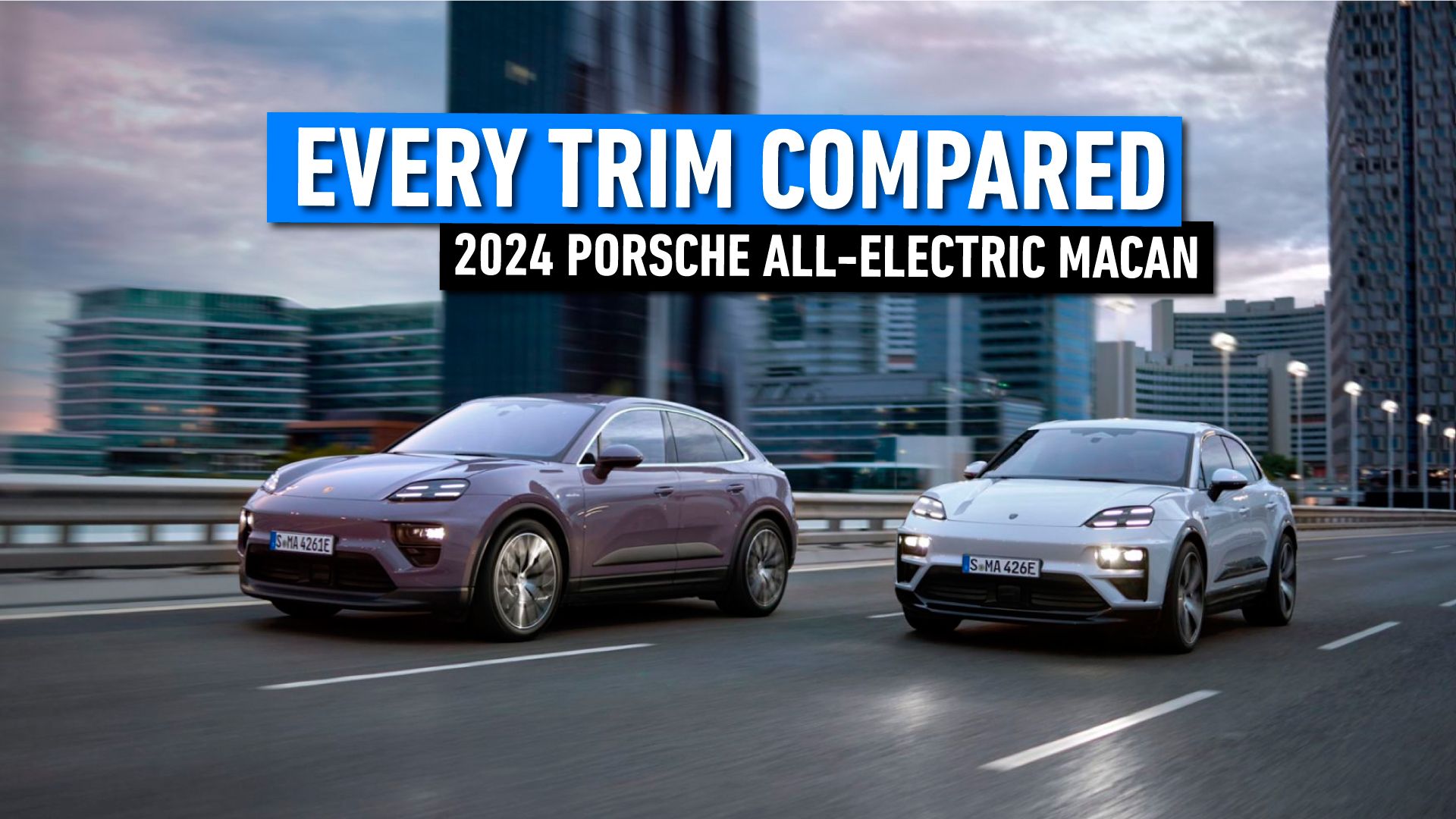
2024 Porsche All-electric Macan: Every Trim Compared
The Porsche Macan EV is available in two trims: Macan 4 for balanced efficiency and affordability, and Macan EV Turbo for final electrical SUV efficiency.
In order to provide the most recent and correct info attainable, the information used to compile this text was sourced from Porsche and different authoritative sources, together with Car and Driver, CNBC, and different dependable shops.
Not Quite Electric: Porsche Is Making “eFuels”
Although we’re seeing Porsche take an electric approach to manufacturing in 2024, the brand has also been perfecting its eFuel lineup. This basically works as a substitute for fuel and electrical by combining the 2 for a considerably technical fuel-powered driving expertise.
Porsche’s “eFuels” are created utilizing renewable vitality, equivalent to wind and solar energy, to generate hydrogen from water by way of electrolysis. Carbon is captured from the surroundings, paired with hydrogen, and used to create artificial fuels, primarily eMethanol and artificial petrol, by way of processes like Methanol synthesis and Methanol-to-Gasoline (MtG) synthesis.
Although this appears like a whacky science experiment, Porsche has acknowledged it plans to totally launch this expertise for its drivers within the coming years, basically eradicating any want for gasoline from its lineup.
- Porsche eFuels: Hydrogen and carbon dioxide react to supply artificial fuels, like eMethanol and artificial petrol.
It Works Like Fuel But Without The Emissions
What makes Porsche eFuels so distinctive is how they work and are sourced. As we talked about above, Porsche captures carbon dioxide from the sky, mixes it with hydrogen, and produces artificial fuels, equivalent to eMethanol and artificial petrol.
These work identically to gas you’d discover at a fuel pump, though with out having to depend on a fossil useful resource OR create emissions when you pull off in your automotive. By utilizing these artificial fuels in combustion engines, Porsche would make a groundbreaking development within the struggle for renewable, clear vitality.
Many brands, including GM and Honda, have additionally been honing in on hydrogen energy and improvement. The Toyota Mirai is one of the first-ever hydrogen-powered models, so this can be a fairly untapped supply of potential for luxurious manufacturers like Porsche.
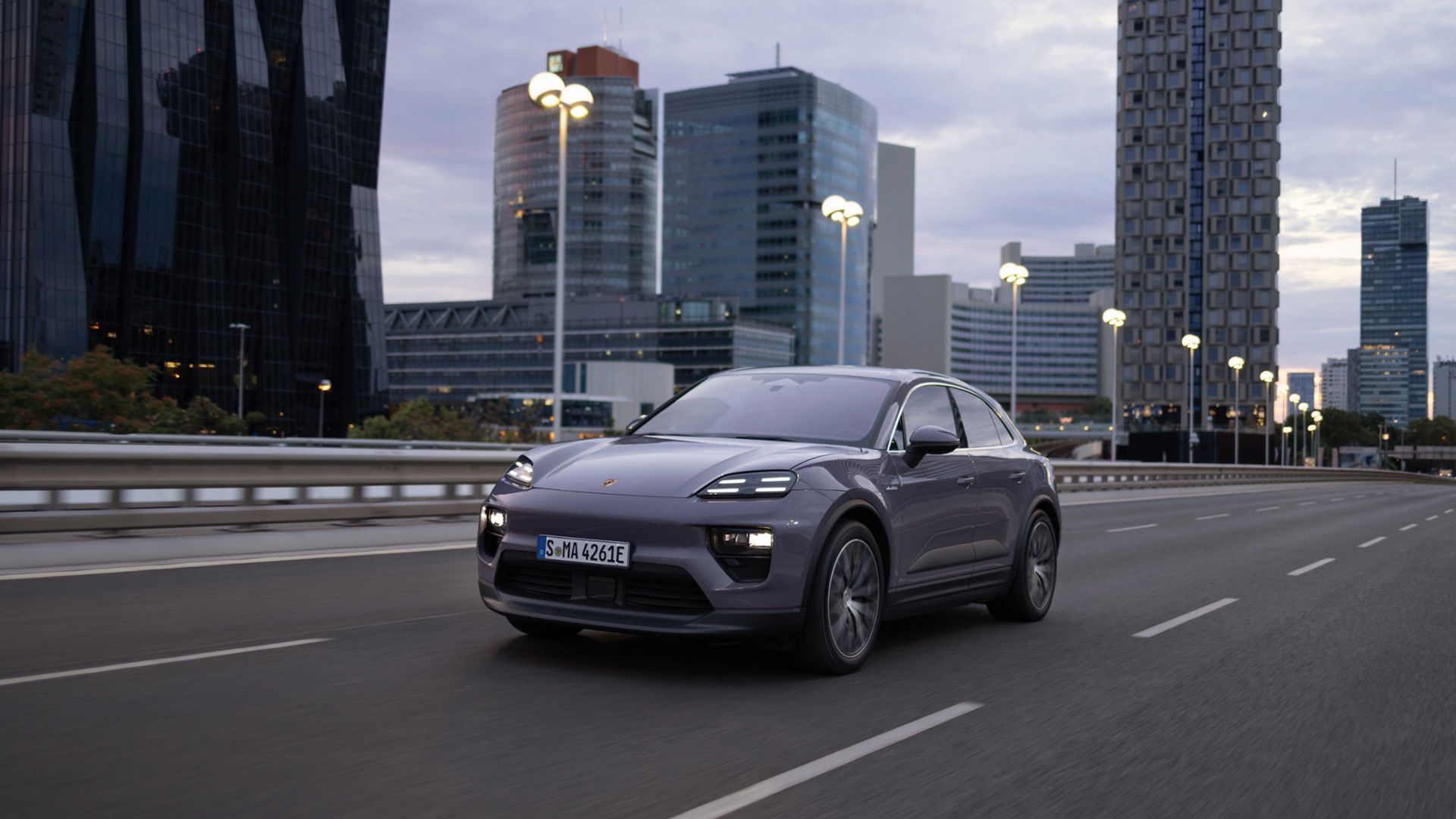
The 2024 Porsche All-electric Macan Revealed With Over 600 Horses And A Familiar Exterior Design
Porsche lastly unveils the Macan EV, mixing acquainted design with an exhilarating electrical efficiency.
Porsche Hopes To Redistribute Clean Driving
An enormous a part of Porsche’s present mission is to supply extra folks an alternative to gas-powered driving. With eFuels, you see an choice to drive a standard Porsche mannequin, all with out utilizing fossil fuels or creating carbon emissions whenever you hit the fuel pedal.
This is part of the redistribution coverage of the model’s eco-friendly automobiles and merchandise, all due to a little bit of scientific analysis and testing. Through strategic partnerships with firms together with HIF Global, Siemens Energy, ExxonMobil, and different worldwide manufacturers, Porsche’s broader technique is to pioneer the gas-free driving expertise of the fashionable shopper. Hydrogen is the future of many EVs, and due to Porsche: ICEs.
- Porsche’s mission: Porsche plans to make use of eFuels as a solution to give the on a regular basis driver an opportunity at cleaner, emission-free driving.
eFuels share elementary properties with conventional fossil fuels like kerosene, diesel, or petrol produced from crude oil. This permits them to be swapped into engines in lieu of precise fuel.
Porsche Has Already Built An eFuel Plant In Chile
Something value overlaying is that Porsche has already invested in a plant to produce eFuels in Punta Arenas, Chile. Because of the abundance of carbon and entry to pure sources, Porsche made the chief determination to place its ft down within the South American nation and get began on producing this latest clear gas. Again, Porsche has continued to insist that this determination to maneuver from Europe to South America for eFuel manufacturing is solely based mostly on environmental circumstances and benefits within the latter space.
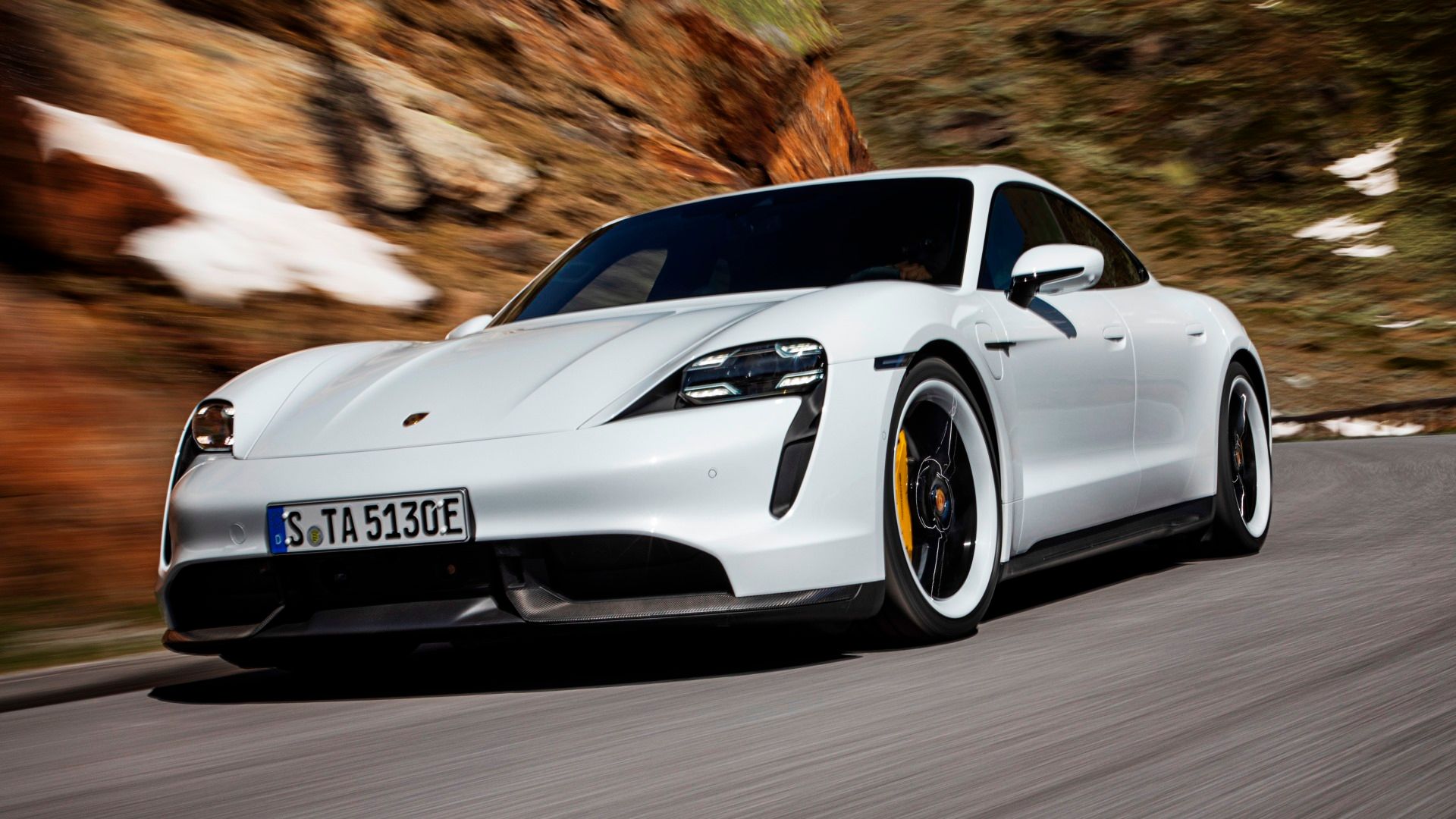
2024 Porsche Taycan: A Comprehensive Guide On Features, Specs, And Pricing
The Porsche Taycan continues its marketing campaign as a fascinating efficiency EV sedan in 2024, and this is what you might want to learn about it.
Any Car With A Gas Tank Could Use eFuels
Porsche has talked about that one of many greatest benefits of eFuels is that Porsche drivers with fuel automobiles can get pleasure from them. Because these synthetic fuels work like a fossil fuel does, you may interchange them to energy your automotive’s engine. Porsche Synthetic Fuel, or eFuels, is meant to be used in combustion engine automobiles: Not EVs, not PHEVs. Porsche, being a sports activities automotive producer, plans to make use of eFuels in its personal combustion-engined fashions. You will get to expertise the identical thrill of ICE driving, all while producing the emissions of an EV: So none.
- Porsche eFuels work in fuel fashions: These artificial fuels would work equally to conventional gasoline in your Porsche’s engine.
Porsche Is Literally Turning Water To Liquid Gold
As a part of Porsche’s multi-hundred million greenback funding into clear, renewable vitality sources, eFuels are an enormous beneficiary of the model’s present eco-strategy. You noticed Porsche put over $100 million into eFuel development final 12 months, in addition to construct a plant to supply it at decrease prices. When any firm invests these sorts of figures right into a mission, which means it’s prone to come to the general public sooner quite than later. eFuel is the brand new liquid gold for Porsche.

This Exclusive Render Shows How Porsche Could Transcend Into The Future With The 911 EV
Been dreaming of an all-electric Porsche 911? Here’s what TopSpeed renderings present the mannequin *might* appear to be.
If Anyone Can Transition Race Cars Off Traditional Gasoline, It’s Porsche
When all is claimed and executed, Porsche bringing a fuel alternative to the auto market can be revolutionary. The European sportscar firm has all the time been miles forward, however with this inexperienced expertise: It might monopolize the house. Another Easter egg we caught whereas studying by way of Porsche press postings is that the model does not plan to cease at vehicles.
eFuel will quickly energy planes, transport vans, boats, and no matter else the model can lengthen to. Through a partnership with HIF Global, this automaker is extending its attain far past the present scope of EVs, PHEVs, and ICEs. You additionally wish to keep in mind that transporting the Chilean-produced eFuels all through North America and again to Europe could also be simpler for the model to begin.
Through partnerships outdoors of Porsche and within the broader transport chain, Porsche plans to make the most of its eFuel expertise to move its personal automobiles between continents, in addition to others. This might turn out to be a a lot bigger enterprise for Porsche, therefore the massive funding from them.
Once this eFuel idea will get off the bottom and is launched at a mass scale by way of distribution networks, anticipate loads of crops and fewer emissions.
- Porsche’s international takeover: Porsche has plans to make use of and distribute eFuels far past its vehicles. This renewable useful resource is claimed to be able to powering cargo automobiles, planes, and even ships.
Expect eFuels To Hit The Market On A Large Scale By Next Decade
Porsche has already begun utilizing its eFuels to energy its motorsport division and occasions, though it will not probably make eFuels largely accessible for a couple of extra years. It is confirmed by Porsche that its present Chilean plant can produce 130,000 liters of eFuels per 12 months and commenced official manufacturing in mid-2022. This is getting used because the testing interval for Porsche earlier than something at a broader scale is allowed to begin. Again, there are a number of transferring components on this effort to rid the world of carbon dioxide, so Porsche is selecting to play the lengthy, not brief, route.


